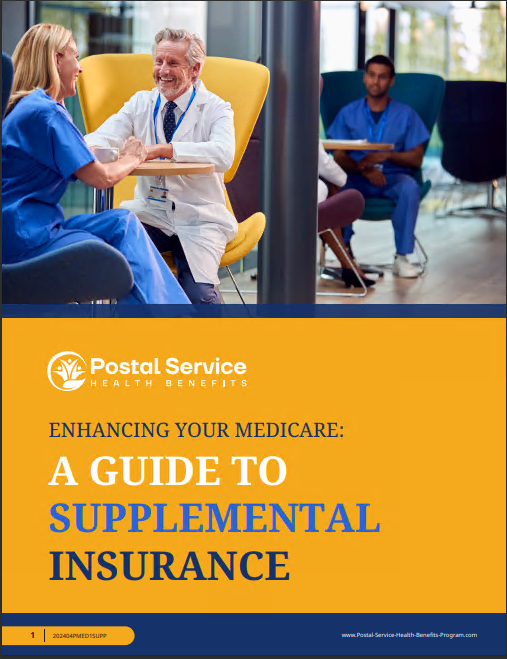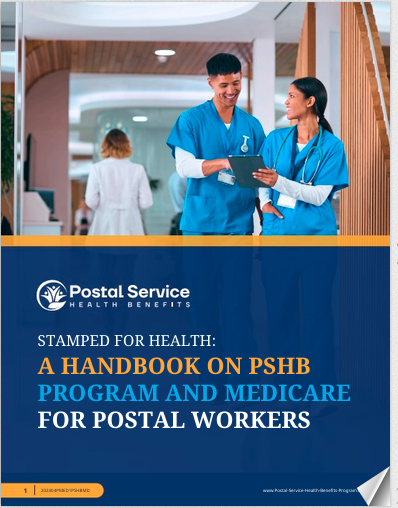Key Takeaways:
- The USPS Health Benefits shakeup in 2024 introduces significant changes that affect employees, retirees, and Medicare beneficiaries, emphasizing the need for careful planning.
- USPS retirees must pay attention to the shift in health plan coordination with Medicare to avoid coverage gaps and manage healthcare costs effectively.
USPS Health Benefits Shakeup: What It Means for Your Future and Medicare
The landscape of healthcare benefits for United States Postal Service (USPS) employees and retirees is undergoing a significant transformation in 2024. These changes come as part of the broader reforms under the Postal Service Reform Act of 2022, aimed at stabilizing the USPS financially and reshaping its health benefit plans. But what exactly do these changes mean for the future of healthcare coverage for USPS workers, especially those approaching Medicare eligibility? This article will break down the new health benefits structure, how it integrates with Medicare, and what it means for both current employees and retirees.
Understanding the USPS Health Benefits Shakeup
The reforms to USPS health benefits are monumental in scope, impacting approximately 600,000 postal workers and over 1 million retirees. Under the new law, the USPS Health Benefits (USPS HB) program will replace the Federal Employees Health Benefits (FEHB) program for USPS employees and retirees. This shift marks one of the most significant overhauls in the agency’s health benefits in decades, aimed at creating cost savings and improving health coverage for workers.
The most noteworthy change is how USPS health benefits will coordinate with Medicare for retirees. As of 2024, Medicare integration will become mandatory for USPS retirees once they reach the age of 65, shifting the way benefits are managed and distributed.
Mandatory Medicare Enrollment: What It Means for Retirees
For years, USPS retirees could choose whether to enroll in Medicare Part B, which covers outpatient services. However, under the new 2024 rules, retirees will be required to enroll in both Medicare Part A (hospital insurance) and Part B (medical insurance) when they turn 65. This change is designed to reduce the financial burden on the USPS health plan, which will now function as a secondary payer once retirees are covered by Medicare.
Why Is Medicare Enrollment Becoming Mandatory?
The goal of mandatory Medicare enrollment for retirees is to alleviate some of the healthcare cost pressures on the USPS by shifting primary coverage to Medicare. By doing so, the USPS can save millions of dollars in healthcare expenses each year, while Medicare takes over a more substantial portion of retirees’ healthcare costs.
For retirees, this means that Medicare will be their primary healthcare provider, and their USPS plan will provide secondary coverage to help with out-of-pocket expenses that Medicare doesn’t fully cover, such as copayments and deductibles.
How Will the Changes Affect Your Medicare Options?
As USPS retirees approach Medicare eligibility, understanding the implications of these changes is crucial. Here are some key points:
Medicare Part A and Part B Enrollment
Enrollment in Medicare Part A (which covers inpatient hospital stays) is generally premium-free for most retirees, but Medicare Part B comes with a monthly premium. Previously, USPS retirees could opt out of Medicare Part B, but with the new regulations, they will need to budget for these premiums starting at age 65. Failing to enroll in Part B can result in significant penalties and potential gaps in coverage under the new USPS plan.
What Happens If You Delay Enrollment?
Delaying enrollment in Medicare Part B can lead to late enrollment penalties that increase your monthly premiums by 10% for each year you were eligible but didn’t sign up. With the new rules, these penalties can become an added financial burden for retirees who are required to have Medicare as their primary coverage but delay enrollment.
It’s essential to stay proactive and ensure that you are fully enrolled in Medicare by your 65th birthday to avoid any penalties and coverage lapses. USPS retirees who turn 65 in 2024 or later should make Medicare enrollment a top priority.
The Impact on Current Employees
While much of the focus has been on how the health benefits shakeup affects retirees, current USPS employees also face significant changes. Employees who are under 65 and still working will see adjustments to their health benefits packages under the USPS Health Benefits program.
Health Benefits Premiums and Coverage
USPS workers will continue to have access to comprehensive health insurance coverage, but with cost-sharing adjustments to premiums and benefits. The USPS HB program will operate similarly to the existing FEHB program, but with more USPS-specific coverage options, which could include higher premiums for some plans. Current employees should review their new options carefully during the open enrollment period.
Future Retirees: Plan Ahead
Employees who are approaching retirement need to start considering their transition to Medicare. With the changes in place, workers must plan for both their postal service health benefits and Medicare, understanding how the two systems will work together. This could involve budgeting for Medicare Part B premiums or exploring supplemental insurance to cover additional out-of-pocket expenses not covered by Medicare or the USPS plan.
New USPS Health Benefits: A More USPS-Centric Approach
With the creation of the USPS Health Benefits program, postal employees and retirees will now have a distinct set of health plans tailored specifically to their needs. Previously, postal workers participated in the broader FEHB program, which serves federal employees across the government. The new USPS HB program is expected to streamline health plan options to better suit the USPS workforce, offering potentially lower premiums and more efficient coordination with Medicare.
However, it’s important to note that the actual details of the USPS-specific health plans have not yet been fully released. Postal employees and retirees will need to pay close attention to the upcoming open enrollment periods to fully understand their options.
Special Provisions for Pre-Medicare Retirees
For those who retire before age 65, the transition may require extra attention. Pre-Medicare retirees will continue to receive their USPS health benefits, but they will need to switch to Medicare once they turn 65. It’s crucial to note that they must be aware of the deadlines for enrolling in Medicare and understand how their benefits will change.
Coordination Between USPS Health Benefits and Medicare
One of the most complex aspects of this new shakeup will be the coordination between USPS health plans and Medicare. When Medicare becomes the primary payer, it will handle the bulk of healthcare costs, while USPS health benefits will serve as secondary insurance. For retirees, this means that some of the costs that Medicare doesn’t cover, like deductibles and copayments, will be taken care of by the USPS plan.
Retirees must understand how this coordination works to avoid coverage gaps. For example, if you fail to sign up for Medicare when you are required to do so, your USPS health plan may not cover certain expenses. Knowing how the two systems overlap is key to maximizing your benefits and minimizing out-of-pocket costs.
What Should USPS Retirees Do Now?
The best way for USPS retirees to prepare for these changes is to take an active approach to their healthcare planning. Here are some steps to consider:
-
Review Medicare Enrollment Deadlines: Ensure that you are aware of when you need to enroll in Medicare Part A and Part B to avoid penalties or gaps in coverage.
-
Plan for Medicare Premiums: Medicare Part B comes with a premium. Start budgeting for these costs well in advance so they don’t catch you off guard.
-
Attend USPS Health Benefits Open Enrollment: Stay informed about your health plan options through USPS’s open enrollment period to make sure you choose the best coverage for your needs.
-
Seek Guidance from Licensed Insurance Agents: Licensed professionals can offer valuable advice to help navigate the complex Medicare enrollment process and understand how it will coordinate with USPS health benefits.
Preparing for the Future of USPS Health Benefits
The USPS health benefits shakeup of 2024 is a major transition that will affect many postal employees and retirees. The move to the USPS Health Benefits program, along with mandatory Medicare enrollment for retirees, represents a significant change in the way health coverage is managed. By staying informed, planning ahead, and understanding how these changes will impact your healthcare coverage, you can make the transition as smooth as possible.






